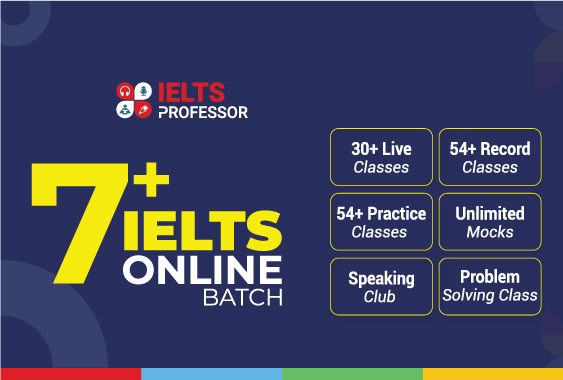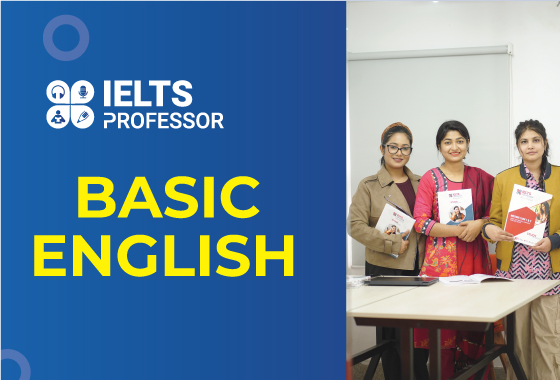
The International English Language Testing System (IELTS) is one of the most
trusted English proficiency tests globally, designed to assess a candidate’s
language skills for academic, professional, and migration purposes. Preparing
for the IELTS exam requires a strategic approach, as it evaluates listening,
reading, writing, and speaking skills in a systematic format. Whether you're
aiming for the Academic or General Training module, this guide provides a
step-by-step roadmap to help you excel in the test.
Understanding the Test Format
Before diving into preparation, familiarize yourself with the IELTS test
structure. Knowing what to expect will reduce anxiety and help you focus on
your skills. Here’s a quick overview:
1. Listening (30 minutes):
o
Four sections with 40 questions based on audio
recordings.
o
Includes conversations, monologues, and
discussions.
2. Reading (60 minutes):
o
Academic module: Three passages on formal or
scholarly topics.
o
General Training module: Texts related to
everyday scenarios, such as ads or brochures.
3. Writing (60 minutes):
o
Task 1: Academic: Interpret
charts, graphs, or diagrams. General Training: Write a letter.
o
Task 2: Write an essay
discussing a topic or presenting arguments.
4. Speaking (11–14 minutes):
o
Three parts: Introduction, individual speech,
and discussion.
Step-by-Step Preparation Guide
Step 1: Set Clear Goals
Identify your target score and the test module you need—Academic or General
Training. Research the requirements of your university, employer, or
immigration authority to set a realistic goal.
Step 2: Build a Study Plan
Craft a study schedule that allocates sufficient time to each test
component. Focus on your weaker areas while maintaining steady progress in your
stronger skills. For example:
·
Week 1-2: Familiarize yourself
with test formats and sample questions.
·
Week 3-4: Focus on individual
sections and practice thoroughly.
· Week 5: Take mock tests and review your performance.
Step 3: Improve Listening Skills
The Listening section evaluates your ability to understand spoken English in
different contexts. To prepare:
·
Practice listening to diverse English accents
(British, American, Australian).
·
Use IELTS practice materials to familiarize
yourself with test scenarios.
·
Regularly listen to podcasts, audiobooks, and
news channels to improve comprehension.
·
Train your ear to focus on key details and take
notes efficiently during recordings.
Step 4: Strengthen Reading Skills
Reading requires the ability to analyze texts and answer questions
accurately. For preparation:
·
Read a variety of materials, such as newspapers,
journals, and books, to expand your vocabulary.
·
Practice skimming and scanning techniques to
locate information quickly.
·
Solve sample Reading questions to understand
question types (True/False, matching, etc.).
·
Develop strategies to manage time during the
test.
Step 5: Practice Writing Tasks
The Writing section tests your ability to articulate ideas clearly and
coherently. To improve:
·
Study sample essays and reports to understand
structure and format.
·
Practice Task 1 and Task 2 separately, focusing
on vocabulary and grammar.
·
Develop outlines before writing to organize
thoughts systematically.
·
Get feedback on your writing from teachers or
online tools.
Step 6: Enhance Speaking Skills
Speaking involves interacting confidently with an examiner in a
conversational format. To prepare:
·
Practice speaking on common IELTS topics, such
as travel, education, or technology.
·
Record yourself to identify areas for
improvement, such as pronunciation or fluency.
·
Participate in discussions or debates to build
confidence.
·
Learn transition phrases for seamless
communication during the Speaking test.
Step 7: Take Mock Tests
Simulating test conditions with mock tests is crucial for identifying gaps
in your preparation. Use official IELTS practice materials or online tools to:
·
Time yourself and manage test sections
effectively.
·
Analyze your answers to identify strengths and
weaknesses.
·
Build stamina for the actual test.
The Benefits of Taking IELTS Mock Tests
Mock tests are an essential part of the preparation process for the IELTS
exam. They simulate the real test environment and provide invaluable insights
into your strengths and weaknesses. Here's an in-depth look at why mock tests
are crucial and how they can help you achieve your desired score:
1. Familiarization with the Test Format
Mock tests allow you to experience the structure and format of the IELTS
exam. By going through each section—Listening, Reading, Writing, and
Speaking—you become comfortable with the types of questions and tasks you'll
encounter during the actual test. This familiarity reduces anxiety and boosts
confidence on test day.
2. Time Management Skills
One of the biggest challenges in IELTS is managing your time effectively.
Each section has strict time limits, and mock tests help you practice
completing tasks within these constraints. For example:
·
In the Reading section, mock tests train you to
skim and scan passages quickly to locate answers.
·
In the Writing section, they help you allocate
time for planning, writing, and reviewing your responses.
By mastering time management during mock tests, you'll be better equipped to
handle the pressure of the real exam.
3. Identifying Strengths and Weaknesses
Mock tests provide a clear picture of your current skill level. After each
test, you can analyze your performance to identify areas where you excel and
areas that need improvement. For example:
·
Are you consistently missing questions in the
Listening section? Focus on sharpening your auditory comprehension.
·
Are you struggling with grammar in Writing
tasks? Dedicate time to refining your grammar and sentence structure.
Knowing your weak spots early on allows you to tailor your study plan and
make targeted progress.
4. Building Stamina and Focus
The IELTS exam is lengthy and demands sustained focus across its four
sections. Mock tests help build your stamina by replicating the duration and
intensity of the actual test. Regular practice trains your mind to maintain
concentration, even when faced with challenging tasks.
5. Practicing Under Real Conditions
Mock tests simulate the exam environment, helping you adapt to test-day
conditions. This includes:
·
Timing each section accurately.
·
Following instructions carefully.
·
Remaining calm under pressure.
By practicing in a realistic setting, you'll gain the confidence needed to
perform well in the actual exam.
6. Improving Strategy and Approach
Mock tests give you the opportunity to experiment with different strategies.
For instance:
·
In the Reading section, you might test whether
answering questions in chronological order or tackling easier questions first
works better for you.
·
In the Writing section, you can refine your
essay structure to achieve better coherence and clarity.
Trying out these strategies during mock tests helps you develop an efficient
approach for test day.
7. Receiving Feedback
If you're taking mock tests through a coaching center or online platform,
you'll likely receive feedback on your performance. Constructive feedback from
teachers or evaluators can pinpoint specific areas for improvement, such as
pronunciation in Speaking or coherence in Writing.
8. Boosting Confidence
Every successful mock test boosts your confidence and reinforces your belief
in your ability to ace the IELTS exam. Even when you make mistakes, learning
from them and improving your performance is an empowering process.
How to Maximize the Benefits of Mock Tests
To get the most out of your mock tests:
·
Take Full-Length Tests:
Complete all sections in one sitting to simulate the real exam experience.
·
Analyze Your Results: Spend
time reviewing your answers and understanding your mistakes.
·
Track Your Progress: Keep a
record of your scores to monitor improvement over time.
·
Seek Guidance: Work with tutors
or use online tools to receive detailed feedback on your performance.
·
Practice Regularly: Incorporate
mock tests into your study plan to ensure consistent progress.
Additional Tips for Success
1. Familiarize Yourself with Common Topics
IELTS frequently focuses on everyday topics, such as work, education,
environment, or health. Prepare ideas and vocabulary related to these themes.
2. Learn Time Management
Managing time during the test is essential. Practice allocating time for
each question and avoid spending too long on any single task.
3. Develop Test-Day Strategies
On the day of the exam:
·
Arrive early at the test center.
·
Bring necessary identification and documents.
·
Stay calm and focused during the test.
4. Use Official Resources
Use IELTS preparation materials provided by Cambridge or the British
Council. These resources offer authentic practice tests and tips.
5. Seek Professional Guidance
Consider enrolling in IELTS preparation courses or working with a tutor to
receive personalized feedback.
The Importance of Consistent Practice
Success in IELTS depends on consistent practice. Dedicate time each day to
developing your language skills across all four components. Stay motivated and
track your progress to ensure steady improvement.
Recommended Tools and Resources
Here are some resources to enhance your preparation:
·
Official Practice Materials:
Available through the IELTS website.
·
Online Platforms: Websites like
IELTS.org offer sample questions and tips.
·
Mobile Apps: Use apps like
IELTS Preparation to practice on the go.
· Books: Cambridge IELTS series provides excellent test preparation.
Conclusion
Preparing for the IELTS exam requires dedication, strategy, and consistent
effort. By understanding the test structure, building a study plan, and
utilizing reliable resources, you can achieve your desired score and open doors
to global opportunities. Whether you're aiming for academic success, career
advancement, or migration, the IELTS test is your gateway to realizing those
dreams.













